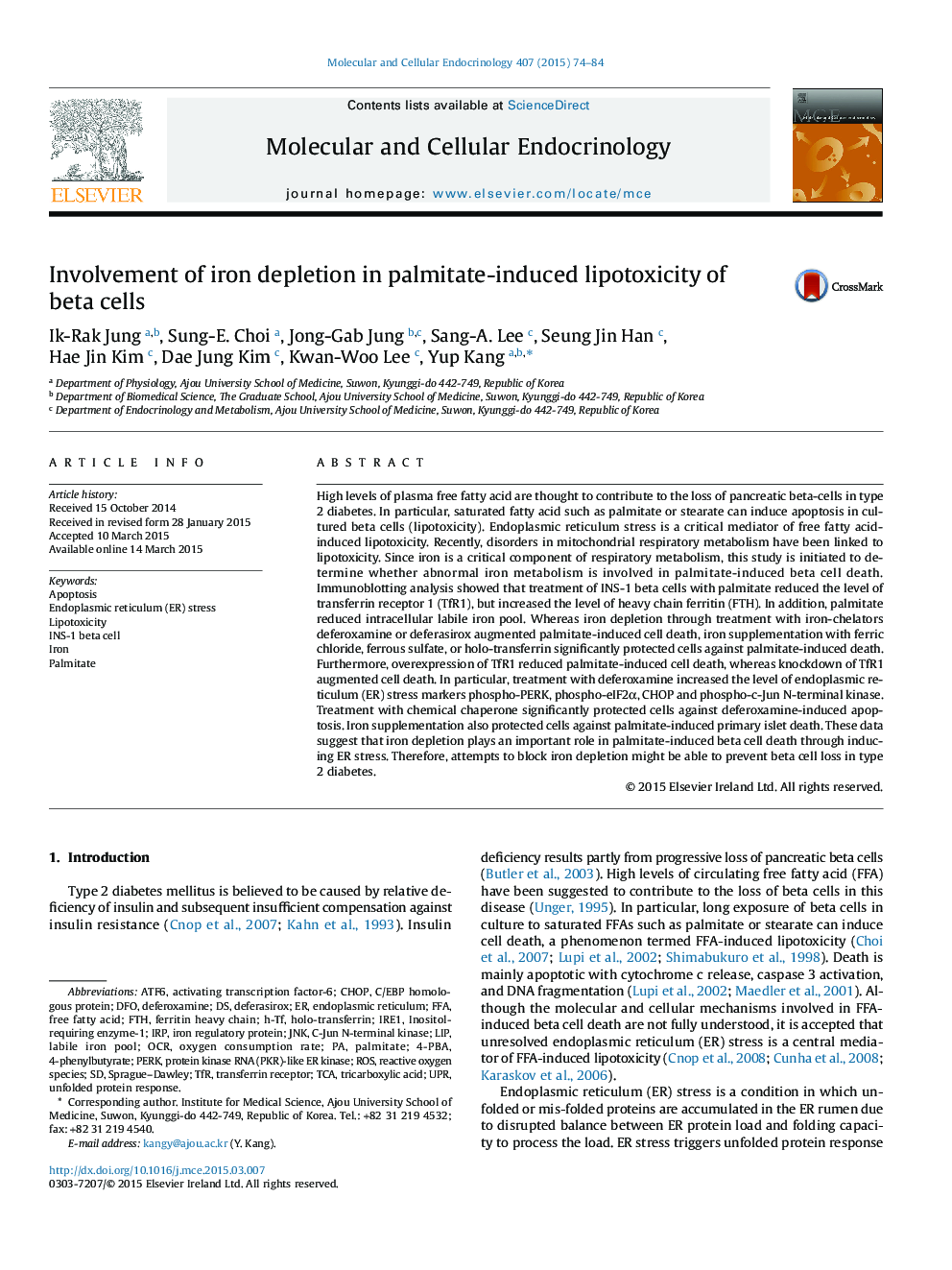| Article ID | Journal | Published Year | Pages | File Type |
|---|---|---|---|---|
| 2195862 | Molecular and Cellular Endocrinology | 2015 | 11 Pages |
•Palmitate treatment reduced the level of transferrin receptor 1 in INS-1 beta cells.•Palmitate treatment reduced labile iron pool in INS-1 cells.•Iron depletion augmented palmitate-induced INS-1 cell death.•Iron depletion induced ER stress responses and augmented palmitate-induced ER stress.•Iron supplementation protected palmitate-induced lipotoxicity.
High levels of plasma free fatty acid are thought to contribute to the loss of pancreatic beta-cells in type 2 diabetes. In particular, saturated fatty acid such as palmitate or stearate can induce apoptosis in cultured beta cells (lipotoxicity). Endoplasmic reticulum stress is a critical mediator of free fatty acid-induced lipotoxicity. Recently, disorders in mitochondrial respiratory metabolism have been linked to lipotoxicity. Since iron is a critical component of respiratory metabolism, this study is initiated to determine whether abnormal iron metabolism is involved in palmitate-induced beta cell death. Immunoblotting analysis showed that treatment of INS-1 beta cells with palmitate reduced the level of transferrin receptor 1 (TfR1), but increased the level of heavy chain ferritin (FTH). In addition, palmitate reduced intracellular labile iron pool. Whereas iron depletion through treatment with iron-chelators deferoxamine or deferasirox augmented palmitate-induced cell death, iron supplementation with ferric chloride, ferrous sulfate, or holo-transferrin significantly protected cells against palmitate-induced death. Furthermore, overexpression of TfR1 reduced palmitate-induced cell death, whereas knockdown of TfR1 augmented cell death. In particular, treatment with deferoxamine increased the level of endoplasmic reticulum (ER) stress markers phospho-PERK, phospho-eIF2α, CHOP and phospho-c-Jun N-terminal kinase. Treatment with chemical chaperone significantly protected cells against deferoxamine-induced apoptosis. Iron supplementation also protected cells against palmitate-induced primary islet death. These data suggest that iron depletion plays an important role in palmitate-induced beta cell death through inducing ER stress. Therefore, attempts to block iron depletion might be able to prevent beta cell loss in type 2 diabetes.
